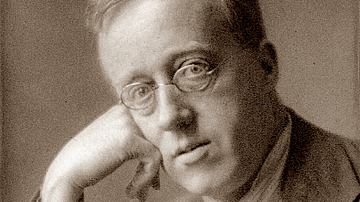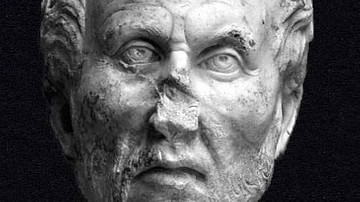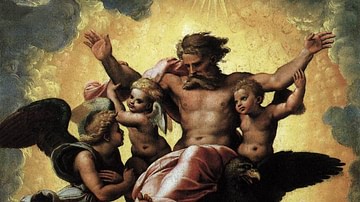Search
Did you mean: Gnosticism?
Remove Ads
Advertisement
Search Results

Definition
Kabbalah
The term Kabbalah refers specifically to the form of Jewish mysticism that became widespread in the Middle Ages. However, in recent decades it has essentially become a generic term for the entirety of Jewish mystical thought. Literally meaning...

Video
Margery Kempe & English Mysticism (In Our Time)
Melvyn Bragg and guests discuss the English mystic Margery Kempe (1373 - 1438 CE) whose extraordinary life is recorded in a book she dictated, The Book of Margery Kempe. She went on pilgrimage to Jerusalem, to Rome and Santiago de Compostela...

Definition
Gustav Holst
Gustav Holst (1874-1934) was a British composer of Swedish origin most famous for his dramatic orchestral suite The Planets, first performed in public in 1919. Holst also composed several operas, wrote sacred choral works such as The Hymn...

Article
Ten Great Persian Poets
Persian literature derives from a long oral tradition of poetic storytelling. The first recorded example of this tradition is the Behistun Inscription of Darius I (the Great, r. 522-486 BCE), carved on a cliff-face c. 522 BCE during the period...

Definition
Persian Rose-and-Nightingale Paintings
Rose-and-nightingale paintings and patterns (gul-u-bulbul) are a subtheme of the bird-flower (gul-u-morḡ) genre in Persian art. Bird-and-flower paintings are of Chinese origin and include pictorial elements such as flowers and plants, birds...

Definition
Plotinus
Plotinus (c. 204-270) was a Platonic philosopher born in Lycopolis, Egypt. Although the story of his life was written down by his student Porphyry, few biographical details are included because Plotinus rejected the physical world of appearances...

Definition
Science
The term science comes from the Latin word scientia, meaning "knowledge". It can be defined as a systematic attempt to discover, by means of observation and reasoning, particular facts about the world, and to establish laws connecting facts...

Definition
Ezekiel
Ezekiel was both a priest and a prophet who lived in the 6th century BCE. The prophets of Israel were oracles (a term for a person as well as a place) for ways in which humans communicated with their gods. The oracle was possessed by the...

Definition
Thomas Müntzer
Thomas Müntzer (l. c. 1489-1525) was a German theologian and apocalyptic preacher who became one of the leaders of the German Peasants' War (1524-1525). An early follower of the reformer Martin Luther (l. 1483-1546), Müntzer established his...

Article
Fatima Al-Fihri and Al-Qarawiyyin University
Fatima Al-Fihri (c. 800-880) was a Muslim woman, scholar and philanthropist who is credited with founding the world’s oldest, continuously running university during the 9th century: the University of Al-Qarawiyyin, located in Fez in Morocco...